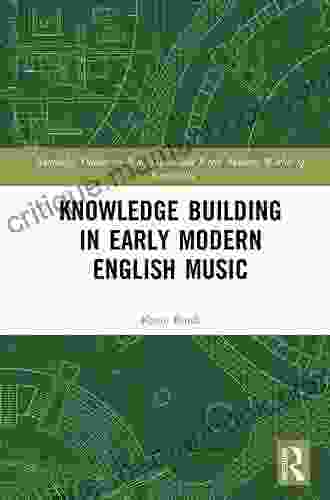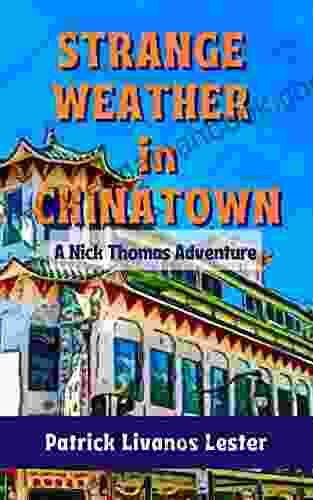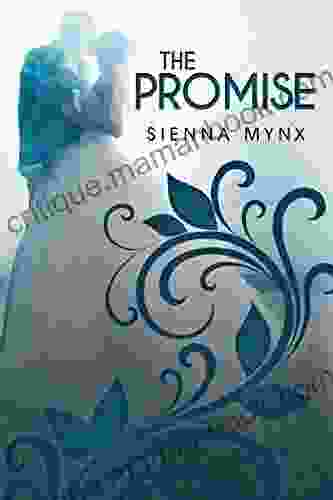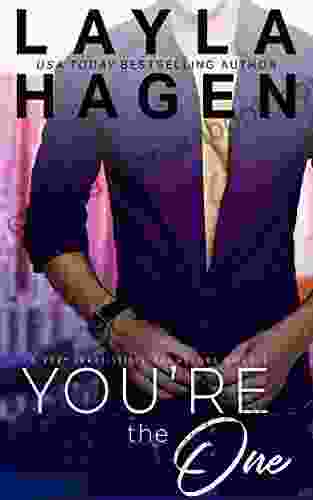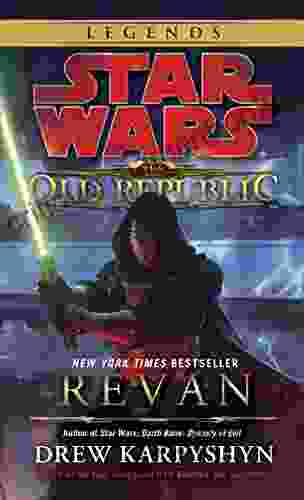Knowledge Building in Early Modern English Music: Routledge Studies in Renaissance and Early Modern Music

In the early modern period, music played a vital role in English society. It was used in religious ceremonies, courtly entertainments, and popular festivities. Music was also taught in schools and universities, and it was a popular form of домашнее задание. As a result, there was a great deal of interest in music theory and practice, and a number of important works on music were published during this period.
4.3 out of 5
| Language | : | English |
| File size | : | 15986 KB |
| Text-to-Speech | : | Enabled |
| Screen Reader | : | Supported |
| Enhanced typesetting | : | Enabled |
| Print length | : | 296 pages |
This book explores the ways in which knowledge about music was created, disseminated, and used in early modern England. It investigates how music was taught and learned, how musical instruments were designed and built, and how music was used in religious, social, and political contexts. The book also examines the role of music in shaping cultural identity and in promoting social change.
This book is a valuable resource for anyone interested in the history of music or in early modern England. It provides a comprehensive overview of the field and offers new insights into the ways in which music shaped early modern English culture.
Chapter 1: Music Education
Music education was an important part of early modern English society. Music was taught in schools and universities, and it was also a popular form of домашнее задание. There were a number of different methods of music education, and the most common method was to learn by ear. Students would listen to their teacher sing or play an instrument, and then they would try to imitate what they heard.
There were also a number of music schools in early modern England. These schools were typically run by professional musicians, and they offered a more formal education in music than was available in schools or universities. Students at music schools would learn to read music, play an instrument, and sing. They would also study music theory and composition.
Music education was important for a number of reasons. First, it helped to create a literate musical population. Second, it helped to preserve and transmit musical traditions. Third, it helped to develop musical talent. Fourth, it helped to promote social and cultural cohesion.
Chapter 2: Musical Instruments
Musical instruments were an essential part of early modern English music. They were used in a wide variety of musical contexts, from religious ceremonies to courtly entertainments to popular festivities. There were a number of different types of musical instruments available in early modern England, and each type had its own unique sound and playing technique.
The most common type of musical instrument in early modern England was the lute. Lutes were plucked string instruments that were played with a pick. They were popular for playing both solo and ensemble music. Other popular instruments included the viol, the recorder, the sackbut, and the trumpet.
Musical instruments were often made by skilled craftsmen. These craftsmen would use a variety of materials to create instruments that were both beautiful and functional. The most common materials used for making musical instruments were wood, metal, and gut.
Musical instruments were important for a number of reasons. First, they helped to create the sound of early modern English music. Second, they helped to shape musical performance practices. Third, they helped to promote social and cultural identity.
Chapter 3: Music and Religion
Music played a vital role in religious life in early modern England. It was used in both Protestant and Catholic services, and it was also used for private devotion. Music helped to create a sense of community and belonging, and it also helped to communicate religious messages.
The most important type of religious music in early modern England was the psalm. Psalms were metrical versions of the Psalms of David, and they were sung in both churches and homes. Other popular types of religious music included hymns, anthems, and motets.
Religious music was often composed by professional musicians. These musicians would often set the psalms and other religious texts to music, and they would also write original compositions for religious services. Some of the most famous religious composers of the early modern period include William Byrd, Thomas Tallis, and Orlando Gibbons.
Music was an important part of religious life in early modern England. It helped to create a sense of community and belonging, and it also helped to communicate religious messages.
Chapter 4: Music and Society
Music played an important role in social life in early modern England. It was used in a wide variety of social contexts, from courtly entertainments to popular festivities. Music helped to create a sense of community and belonging, and it also helped to shape social hierarchies.
The most important type of social music in early modern England was the dance. Dances were popular at all levels of society, and they were used for both entertainment and social interaction. Other popular types of social music included songs, ballads, and instrumental music.
Music was often used to mark important social events. For example, music was played at weddings, funerals, and other celebrations. Music was also used to accompany social activities, such as dancing, dining, and gambling.
Music played an important role in shaping social hierarchies in early modern England. The type of music that a person listened to or performed could indicate their social status. For example, courtly music was typically performed by professional musicians, while popular music was often performed by amateurs. Music could also be used to express social and political opinions. For example, some Puritan sects banned the use of music in religious services, while others used music to promote their religious beliefs.
Chapter 5: Music and Politics
Music played an important role in political life in early modern England. It was used to celebrate royal events, to promote political messages, and to rally support for political causes. Music could also be used to express political dissent.
4.3 out of 5
| Language | : | English |
| File size | : | 15986 KB |
| Text-to-Speech | : | Enabled |
| Screen Reader | : | Supported |
| Enhanced typesetting | : | Enabled |
| Print length | : | 296 pages |
Do you want to contribute by writing guest posts on this blog?
Please contact us and send us a resume of previous articles that you have written.
 Top Book
Top Book Novel
Novel Fiction
Fiction Nonfiction
Nonfiction Literature
Literature Paperback
Paperback Hardcover
Hardcover E-book
E-book Audiobook
Audiobook Bestseller
Bestseller Classic
Classic Mystery
Mystery Thriller
Thriller Romance
Romance Fantasy
Fantasy Science Fiction
Science Fiction Biography
Biography Memoir
Memoir Autobiography
Autobiography Poetry
Poetry Drama
Drama Historical Fiction
Historical Fiction Self-help
Self-help Young Adult
Young Adult Childrens Books
Childrens Books Graphic Novel
Graphic Novel Anthology
Anthology Series
Series Encyclopedia
Encyclopedia Reference
Reference Guidebook
Guidebook Textbook
Textbook Workbook
Workbook Journal
Journal Diary
Diary Manuscript
Manuscript Folio
Folio Pulp Fiction
Pulp Fiction Short Stories
Short Stories Fairy Tales
Fairy Tales Fables
Fables Mythology
Mythology Philosophy
Philosophy Religion
Religion Spirituality
Spirituality Essays
Essays Critique
Critique Commentary
Commentary Glossary
Glossary Bibliography
Bibliography Index
Index Table of Contents
Table of Contents Preface
Preface Introduction
Introduction Foreword
Foreword Afterword
Afterword Appendices
Appendices Annotations
Annotations Footnotes
Footnotes Epilogue
Epilogue Prologue
Prologue Meg Meeker
Meg Meeker Anis Mojgani
Anis Mojgani Adam Makos
Adam Makos Roger Higgins
Roger Higgins Richard Hofstadter
Richard Hofstadter Michael Crichton
Michael Crichton Judy Shelton
Judy Shelton Ellen Feldman
Ellen Feldman Michelle Icard
Michelle Icard Andreas Fecker
Andreas Fecker Rachel Benge
Rachel Benge Sue Julsen
Sue Julsen Becky Rapinchuk
Becky Rapinchuk J M Dalgliesh
J M Dalgliesh Marshall Armstrong
Marshall Armstrong Declan James
Declan James Joanie Chevalier
Joanie Chevalier Dk
Dk Roy Casagranda
Roy Casagranda Kyle Roberts
Kyle Roberts
Light bulbAdvertise smarter! Our strategic ad space ensures maximum exposure. Reserve your spot today!
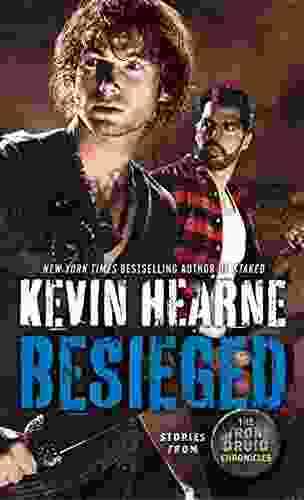
 Harry HayesNine of the Iron Druid Chronicles Short Stories: A Literary Adventure Through...
Harry HayesNine of the Iron Druid Chronicles Short Stories: A Literary Adventure Through... Charles BukowskiFollow ·13.2k
Charles BukowskiFollow ·13.2k Henry Wadsworth LongfellowFollow ·13k
Henry Wadsworth LongfellowFollow ·13k Hector BlairFollow ·14.7k
Hector BlairFollow ·14.7k Melvin BlairFollow ·6.7k
Melvin BlairFollow ·6.7k Morris CarterFollow ·14.9k
Morris CarterFollow ·14.9k Donovan CarterFollow ·12.5k
Donovan CarterFollow ·12.5k Yasunari KawabataFollow ·2.4k
Yasunari KawabataFollow ·2.4k Levi PowellFollow ·14.4k
Levi PowellFollow ·14.4k
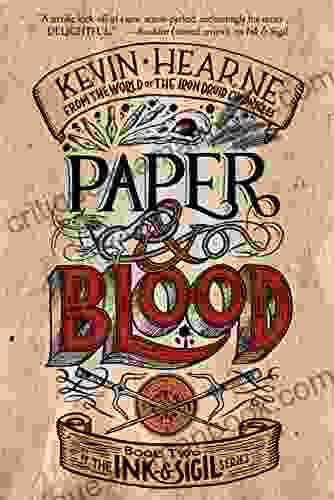
 Dan Henderson
Dan HendersonPaper Blood: Two of the Ink Sigil
By D.S. Otis In...
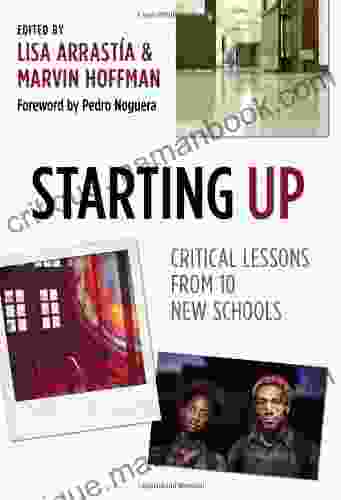
 Joseph Conrad
Joseph ConradStarting Up: Critical Lessons from 10 New Schools
Starting a new school...

 William Powell
William PowellThe Peculiar World of Funny Science Fiction Comedy: Where...
Prepare yourself for an...
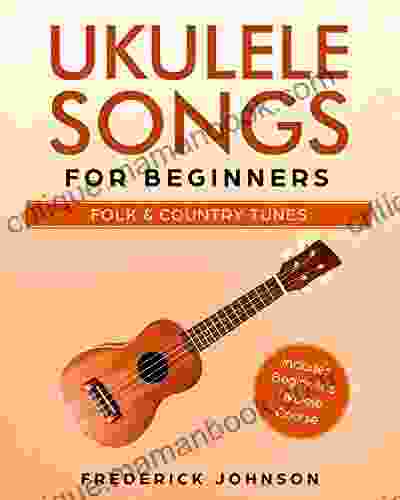
 Edgar Hayes
Edgar HayesUkulele Songs for Beginners: A Comprehensive Guide to...
Embark on a musical journey with the...
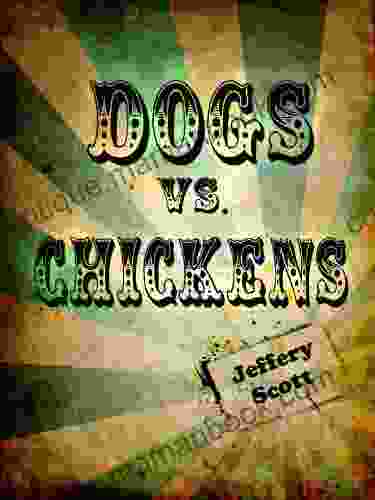
 Ralph Turner
Ralph TurnerDogs vs. Chickens: A Comprehensive Guide to Choosing the...
Dogs and chickens are both popular...
4.3 out of 5
| Language | : | English |
| File size | : | 15986 KB |
| Text-to-Speech | : | Enabled |
| Screen Reader | : | Supported |
| Enhanced typesetting | : | Enabled |
| Print length | : | 296 pages |


